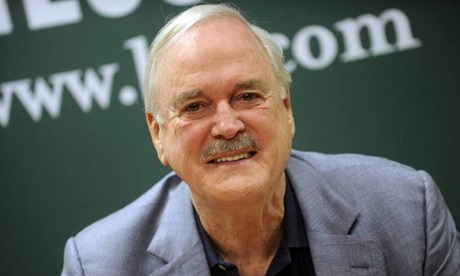Catholic Herald interviews John Cleese:
How does it feel to give an interview to a Catholic publication?
John Cleese (pictured): “The question slightly amuses me, but I see why I’m being asked that.
“I do have a very mixed view of the Catholic Church, because I think what happens to most religions is that after the initial spiritual height of the early generations ministering the religion, that spirituality slowly diminishes and the churches begin to take on an ordinary human egotistical aspect.
“For example, you have Christ’s teaching, which is primarily of poverty, humility and tolerance; then 2,000 years later you have a Catholic Church that is very rich and very powerful and quite authoritarian.
“Similarly, I find it hard to believe that Jesus Christ would have regarded burning people alive as a correct interpretation of his Gospel of love.
“There can be a very large gap between the teachings of the founder of the religion and the people centuries later who are administering it.
“This does not mean that there are not some very fine people within the Catholic Church. I have known a couple myself and they work within the Church, trying to do the best job they can even if it is within a framework that they often cannot truly believe in.
“So, I have no worries at all about being interviewed by a Catholic publication because some of the people reading the interview will understand and probably be reasonably sympathetic to my views.”
How would you describe your personal relationship to faith and religion, and its development?
Cleese: “I think my lifelong quest, albeit a very dilettante one, has been to try to find meaning. And I think that any such meaning that would satisfy me would have some element of religion about it.
“However, when I’m asked if I believe in God, I simply have to say I don’t know what it means.
“I do believe there may be a real purpose in the Universe and I believe that there may be a force out there that people who have a religious experience contact.
“I think some people who have undergone rigorous spiritual training may contact that beneficial force more often than most of the rest of us are lucky enough to do.
“And I believe contact with that benevolent force is very beneficial to the people who manage it and even to the people around those individuals who manage it.
“Also, I don’t think there’s any question that some degree of stillness sometimes brings a spiritual experience which causes people’s behaviour to become increasingly unselfish.”
Did you ever think that religious people would one day regard ‘The Life of Brian’ in a positive way? Read more
- Sebastian Moll has a PhD in Divinity from Edinburgh University and works at the Theological Faculty of the University of Mainz.
News category: Analysis and Comment.




